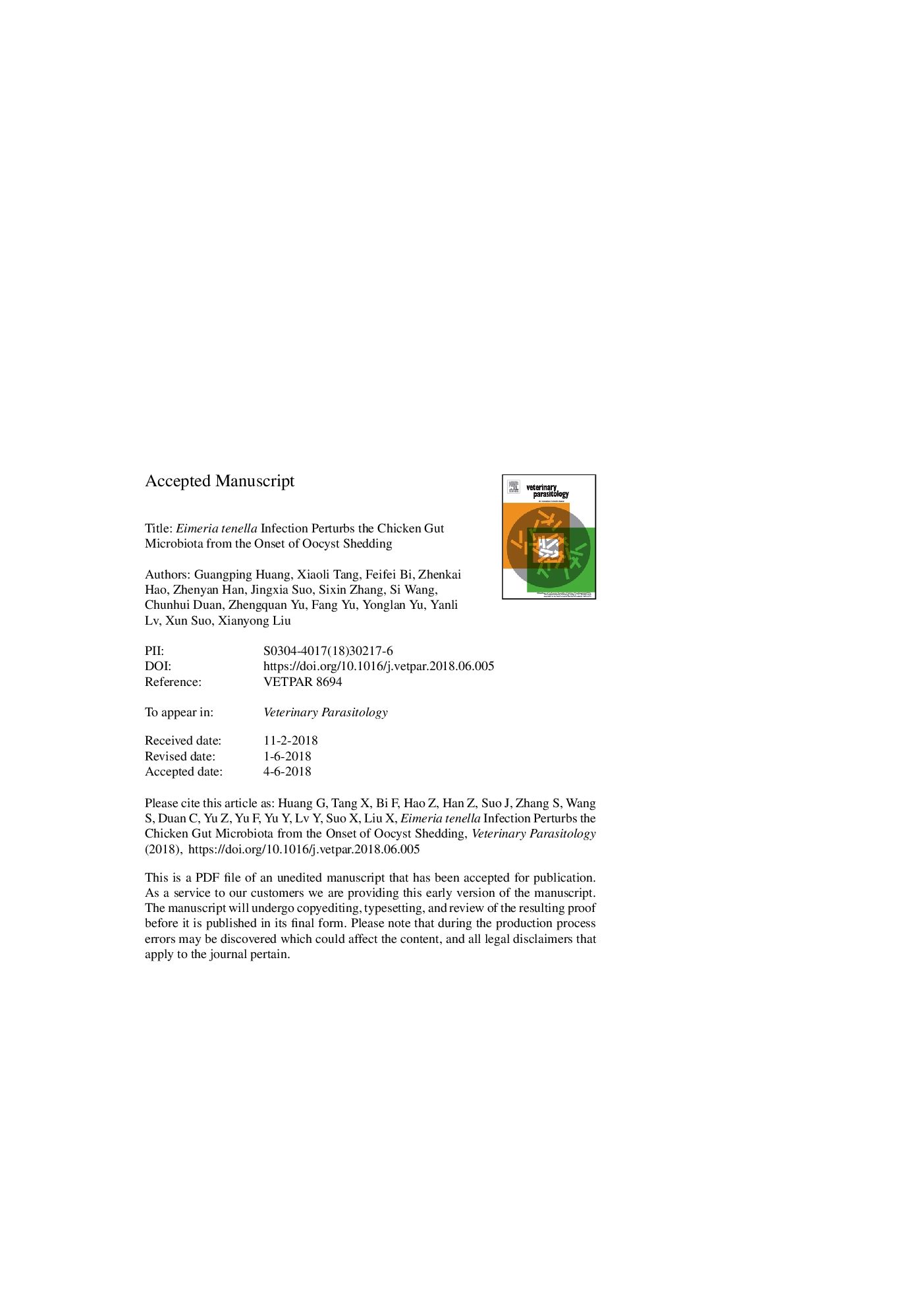| Article ID | Journal | Published Year | Pages | File Type |
|---|---|---|---|---|
| 8505906 | Veterinary Parasitology | 2018 | 24 Pages |
Abstract
Coccidiosis is a serious threat to the poultry industry, resulting in substantial economic losses worldwide. The effective development of alternative treatments for coccidiosis that does not involve chemotherapy drugs and does not result in antibiotic resistance relies on gaining a clearer understanding of the interaction between host intestinal microbiota and enteric coccidia. Here, we established an Eimeria tenella infection model in chickens and subsequently monitored the changes in the overall intestinal microbiome using 16S rRNA gene sequencing. We found that the gut (i.e. fecal) microbiota of infected chicken differed from that of uninfected naïve animals. Levels of non-pathogenic bacteria, including Lactobacillus and Faecalibacterium declined, whereas those of pathogenic bacteria, including Clostridium, Lysinibacillus, and Escherichia, increased over time in response to E. tenella infection. Similar dynamic changes of the fecal microbiota were observed in both Arbor Acres broilers and White Leghorn chickens, indicating that the perturbation of the microbiota was directly induced by E. tenella infection. Our findings could be used to further elucidate the serious damage to host health caused by coccidia infection, leading to the development of new effective treatment options for coccidiosis.
Keywords
Related Topics
Life Sciences
Agricultural and Biological Sciences
Animal Science and Zoology
Authors
Guangping Huang, Xiaoli Tang, Feifei Bi, Zhenkai Hao, Zhenyan Han, Jingxia Suo, Sixin Zhang, Si Wang, Chunhui Duan, Zhengquan Yu, Fang Yu, Yonglan Yu, Yanli Lv, Xun Suo, Xianyong Liu,
